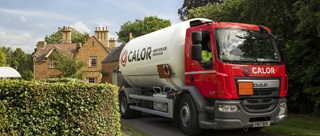
Liquefied petroleum gas (LPG) is an efficient and versatile energy source that can be used for a wide variety of applications.
LPG is generally used in gaseous form and can therefore power normal gas appliances such as cookers, heaters and boilers. In rural areas, it can provide a self-contained source of gas for many different applications. When used to replace currently more popular fuel options, significant carbon savings can be made. LPG is also used in many parts of the world to power vehicles and, in developing countries, to replace hazardous solid fuel for cooking stoves. There are more than a thousand applications for LPG, but we have listed the main ones below.

Heating
LPG is used at home and in offices for heating applications. It is also used by farmers for their greenhouses.
Cooking
LPG can be easily connected to any home cooking appliance and provides a cleaner energy source for cooking than coal or heating oil.
Transportation
LPG is used as an automotive transportation fuel by choice. The most widely accepted alternative is autogas; over 25 million vehicles run on it worldwide.
Mobile power generation
Mobile power generators on LPG produce soot-free emissions, no smoke or smell and are a greener solution for all. Uninterruptible power supply from an LPG cylinder is essential for mobile catering, construction, and emergency relief.LPG produces less CO2 and emits virtually no black carbon or other particulates compared to solid & liquid higher carbon fuels like coal and heating oil. The benefits of LPG make it an immediate and versatile fuel solution to reduce indoor and outdoor air pollution.
LPG can be transported and used almost anywhere. This means regions without a main gas network, can have access to a cleaner, convenient fuel and it can be used even in the most remote areas.
less CO2 than alternative hydrocarbon fuels
more efficient than traditional fuels
applications making it a versatile fuel
particulate matter released

Calor LPG helps Naturediet dramatically cut energy costs.
Naturediet, a wet pet food manufacturer, is predicted to save up to £20,000 a year and reduce its CO2 emissions by more than 80 tonnes by switching from kerosene to LPG.